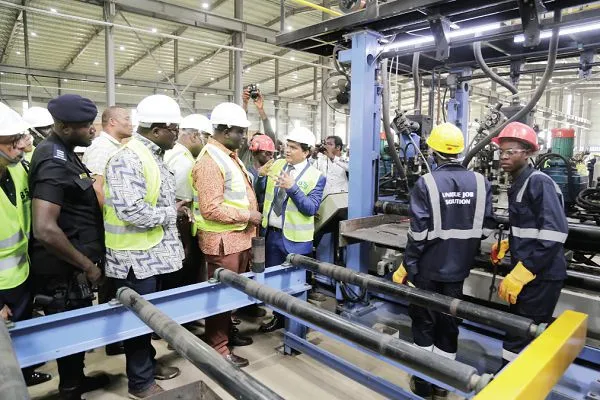The Department of Factories Inspectorate, a department under the Ministry of Employment and Labour Relations, is in utter neglect – posing grave harm to factory workers and Occupational Safety and Health (OSH) issues.
For instance, an estimated 800 inspectors are required to effectively oversee the supervision of factories’ health and safety needs nationwide; however, the department currently has only 54 inspectors across the country.
The Acting Chief Inspector of Factories, George Gashon, notes that the penetration rate of factories across the country vis-à-vis shortage in the number of inspectors is creating a challenge for the department.
Despite renewed industrialisation efforts by government through the One District-One Factory (1D1F) programme, only a handful of such factories have safety inspectors deployed by the department due to this deficit.
President Nana Akufo-Addo announced in April last year that 107 factories had been established under his government’s flagship industrialisation programme, with over 200 others at various stages of completion.
Additionally, a number of industrial establishments are springing up across the country – especially on the back of implementing the African Continental Free Trade Area (AfCFTA).
However, efforts to expand the country’s industrial base have failed to effectively staff a key sector agency like the DFI, essentially needed to enforce health and safety parameters in the country.
Indeed, hopes of becoming a leading industrial force within the continental free market zone could be dashed if OSH is not addressed urgently.
The genesis of most disastrous accidents among global industries, in both the present and past, can be traced to either absence or weak implementation of occupational health and safety management systems.
Despite the familiarity of occupational health and safety concepts, organisations across different sectors continue to record huge losses and inefficiencies due to high rates of job-related illness and injuries.
According to the International Labour Organisation (ILO), over 2.3 million occupational accidents occur annually around the world, and out of this number an estimated death-count of over 6,000 employees is recorded daily.
Meanwhile, developing countries continue to record more huge losses in work-related accidents than the developed economies. In Ghana, the estimated accident rate is 15,702 per 100,000 workers; and fatal accidents number 1,852 with a fatality rate of 20 per 100 workers across industries.
Data from the DFI suggest that occupational accidents and work-related injuries for the period 2000–2010 cost Ghanaian industries an estimated amount of GH¢3.5million.










